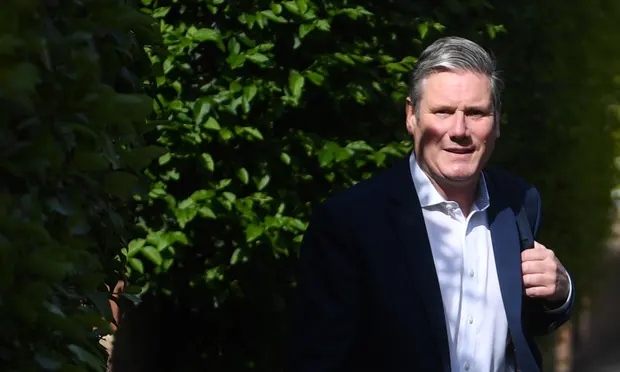Keir Starmer has defended dropping key pledges made during his Labour leadership bid, saying they have been adapted given unprecedented global events, as he prepares to set out his five “national missions” to voters.
Before a speech in Manchester that will reveal the building blocks of Labour’s general election manifesto, Starmer sought to convince voters he would stand by the new targets, which include delivering the highest sustained growth in the G7 for Britain.
He denied that the 10 promises he made during the 2020 race to succeed Jeremy Corbyn had been abandoned and insisted they remained “important statements of value and principle”.
However, Starmer refused to confirm that he stood by several of them, including public ownership of utilities and rail services and the abolition of university tuition fees.
He has been repeatedly criticised by some on the left of the party who accuse him of shifting away from the platform he stood on three years ago.
Challenged on BBC Radio 4’s Today programme over whether voters could trust him to deliver the five new national missions, Starmer said the pledges made during his Labour leadership bid “haven’t all been abandoned by any stretch of the imagination”.
He said: “What I’ve had to do is obviously adapt some of them to the circumstances we find ourselves in. Since I ran for leader, we’ve had Covid. Since I ran for leader, we’ve had the conflict in Ukraine. Since I ran for leader, we’ve had a government that’s done huge damage to our economy.”
Voters “desperately want change”, Starmer said, and he pointed to his priorities for an incoming Labour government as evidence of his belief in a “longer-term solution”.
Pressed on whether he was still pursuing the nationalisation agenda he expressed support for in 2020, Starmer said that when energy prices began to spiral after Russia’s invasion of Ukraine, he asked his team to “mock up different proposed answers to that specific question, in the reality of 2022”.
“I said include in your analysis, taking energy into public ownership, how much would it cost. What would we get for it. And will it lower bills for this autumn, and so they did that for me.
“And having done that analysis, I took the political choice that it would be better to have an energy price freeze, paid for by a windfall tax on the oil and gas companies that made profits they didn’t expect to make.”
Starmer did not say whether he stood by scrapping tuition fees, instead saying that the system “at the moment doesn’t work” and should be changed.
Recalling his recent visit to Ukraine, where he met Volodymyr Zelenskiy, Starmer said he confirmed that a Labour government would keep up support for Kyiv, and he felt humbled by the “resilience and courage” of the Ukrainian people.
Starmer expressed support for a court rejecting Shamima Begum’s bid to regain her British citizenship. He said it was the “right decision” and that “national security must come first”.
A new plan by ministers to send questionnaires to refugees instead of conducting official interviews was called “an admission of failure” by Starmer. He said it was proof that the backlog of asylum applications was so big that the government could not cope.


